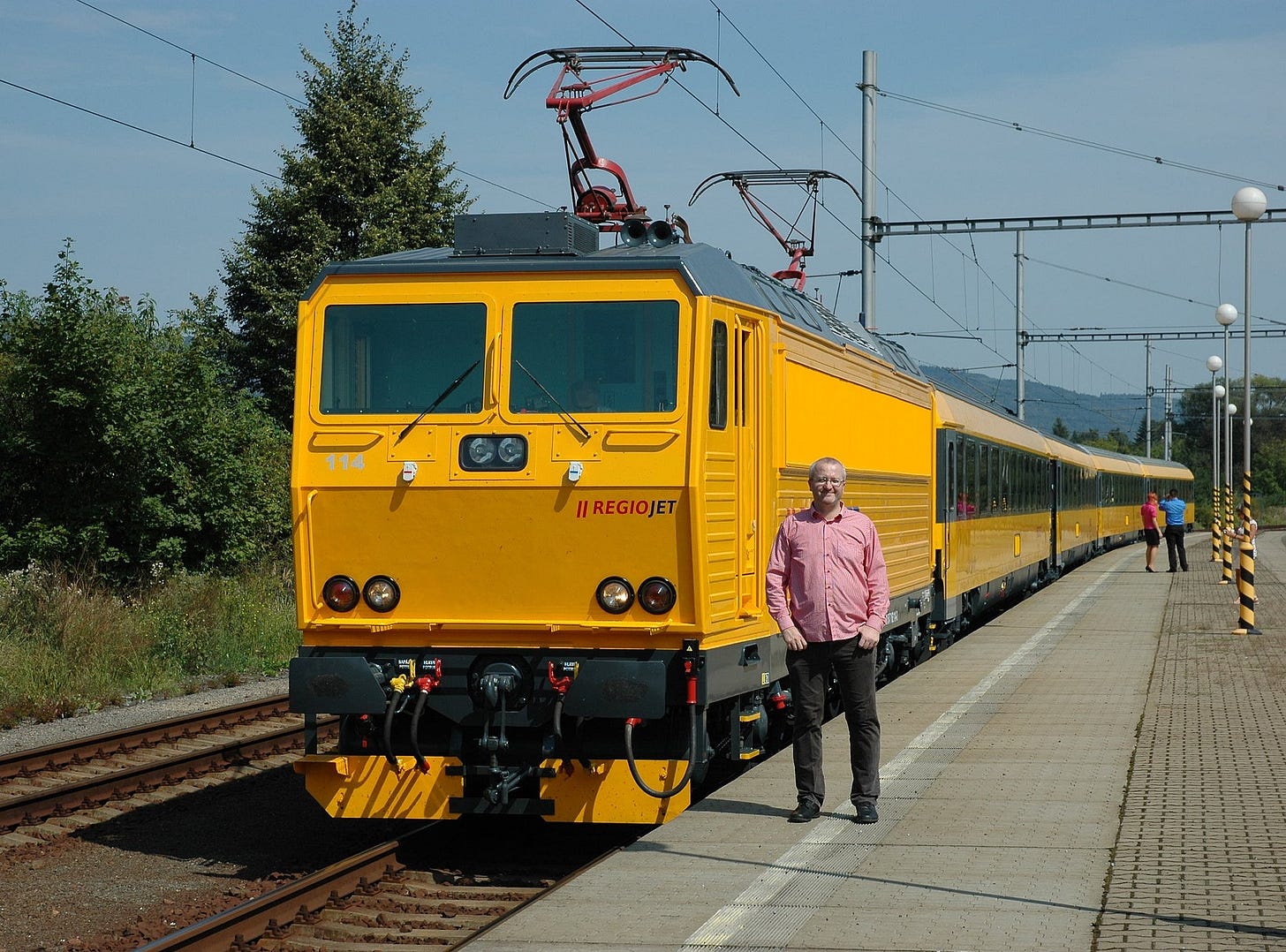From Czech bus maverick to Poland's rail liberator - the RegioJet story

RegioJet's Warsaw-Krakow launch represents more than market entry. It's the culmination of Radim Jančura's 30-year campaign against transport monopolies. The entrepreneur who revolutionized Czech bus travel now targets Europe's most protected rail markets.
Radim Jančura started Student Agency in 1993, selling bus tickets from his Brno apartment. Czech state bus transport was expensive, uncomfortable, and indifferent to customers. Jančura saw opportunity in offering what monopolies wouldn't: leather seats, free coffee, onboard entertainment, and tickets at half the state price.
Within a decade, Student Agency's yellow buses dominated Czech highways. The company carried 18 million passengers annually by 2008, forcing state operators to improve or lose market share. Jančura proved a simple formula: better service at lower prices beats lazy monopolies.
But buses have limits. Real transport revolution required taking on the railways.
Breaking into steel rails
In 2009, Jančura founded RegioJet and targeted Czech Railways' most profitable route: Prague-Ostrava. The state operator fought back with every tool available. Suddenly, no station slots existed. Technical requirements changed monthly. Safety inspections multiplied mysteriously.
RegioJet persisted. In 2011, its first yellow trains began service, offering the bus formula on rails: free coffee, wifi, seat entertainment, and fares 40 percent below Czech Railways. Passengers responded immediately. Within two years, RegioJet captured 35 percent market share on competitive routes.
The success triggered expansion across Central Europe. RegioJet entered Slovakia in 2014, Austria in 2017, and established operations in Hungary and Croatia. Each market required different strategies, but the core approach remained: identify profitable monopoly routes, offer better service at lower prices, and accept initial losses while building market share.
Why Poland matters most
Poland represents RegioJet's biggest challenge and opportunity. With 38 million people and minimal rail competition, it's Central Europe's last major protected market. Polskie Koleje Państwowe (PKP) Intercity controls over 90 percent of long-distance traffic despite EU liberalization rules from 2007.
Jančura spent two years preparing the entry. RegioJet recruited Polish drivers with higher salaries than PKP offers. The company modified trains for Polish technical requirements. It studied PKP's premium Pendolino service between Warsaw and Krakow, identifying the weakness: high prices for modest service.
The September 18 launch was deliberately modest – one daily train pair. But Jančura promises December expansion to match Pendolino speeds at "half the price." It's the same playbook from 1993, now applied to Europe's fifth-largest country.
The obstacles remain real
Poland's rail establishment learned from Czech Railways' mistakes. Infrastructure manager PKP PLK controls track access through the same holding company as operator PKP Intercity. Timetable allocation mysteriously favors incumbents. Station agreements require months of negotiation.
RegioJet Strategy Director Jiří Schmidt describes "reinforced obstacles" across Europe. Each country adds unique technical requirements despite EU harmonization rules. Crew licenses don't transfer between countries. Even approved rolling stock needs modifications at each border.
These aren't accidents. They're deliberate strategies to preserve monopolies while appearing compliant with EU law. RegioJet succeeds by accepting these costs as market entry fees, knowing that once established, profitable operations follow.
What success would trigger
If RegioJet captures 20-30 percent of the Warsaw-Krakow market – achievable based on Czech experience – PKP must respond. Price cuts would benefit all passengers. Service improvements would modernize Polish rail. Most importantly, success would encourage other private operators to enter.
RegioJet already plans Warsaw-Gdańsk, Poznań-Warsaw, and international routes to Prague and Vienna. A successful Polish operation would enable Baltic expansion and potential German market entry. Jančura envisions RegioJet as Central Europe's first truly international operator.
The Warsaw-Krakow route tests whether Jančura's formula – proven across buses and five rail markets – can crack Europe's toughest monopoly. PKP Intercity, backed by state resources and political connections, represents a more formidable opponent than Czech Railways ever was.
Yet Jančura has one advantage: three decades of beating monopolies. From that Brno apartment selling bus tickets to challenging Poland's protected rail market, the strategy hasn't changed. Offer what monopolies won't, at prices they can't match, and let passengers decide.

